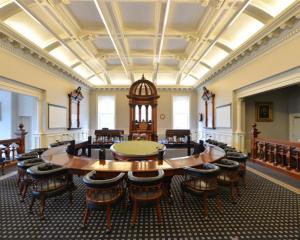However, it appears the action against council city property manager Robert Clark was not because the details he confirmed were wrong - just that councillors did not know them all yet.
His comments prompted a joint statement from Mayor Dave Cull and council chief executive Paul Orders yesterday, stressing the projects remained "at an exploratory stage" and were yet to be confirmed.
That was despite Mr Clark also telling the Otago Daily Times the projects were yet to be confirmed, and would require consideration by councillors before anything was approved.
Mr Clark could not be contacted last night, but Mr Orders confirmed Mr Clark had been called in for a "frank discussion" as a result of his comments.
However, Mr Cull conceded he did not know if the details revealed by Mr Clark were inaccurate or not.
Instead, it was "more a timing thing", Mr Cull said.
"My council is like a board of directors. They quite like to know about proposals and things prior to them being in the newspaper."
It was not the first time a council manager has found himself in trouble for speaking frankly, or accurately.
In 2010, council Tahuna upgrade manager Brian Turner was told not to speak to media after discussing possible delays to the upgrade of Dunedin's Tahuna wastewater treatment plant - delays which were later confirmed.
Mr Clark's comments came after being contacted by the ODT and questioned about the portfolio's possible expansion, which was already in the public domain.
However, in the joint statement, Mr Orders said he would need to be convinced the benefits of any proposals were "iron-clad", especially given existing council debt and prevailing economic conditions.
Mr Cull said initiatives that could reduce council costs, or increase revenues, should be explored, but it was too early to say whether those identified by Mr Clark were worth pursuing.
The plans would also need to be considered against council planning initiatives, including the spatial plan and economic development strategy being developed.
Mr Cull told the ODT some of the proposals Mr Clark mentioned could be "extremely positive", and it was Mr Clark's job to find ways to increase revenue. However, the proposals also remained tentative, and people might have "inferred, perhaps wrongly" that decisions had already been made, Mr Cull believed.
"It's not appropriate, both either in terms of timing or who has to take responsibility for judging the merits of things, for possibilities to be canvassed in public.
"It's common sense in any normal business environment to do things in the right order."












